


The book Francoism against Protestants uncovers forgotten stories of repression during the Franco dictatorship, shedding light on the past and present of evangelical communities in Spain.
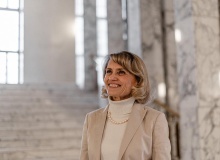
Finnish Christian politician, Päivi Räsänen, is about to face her final trial for her writings on Biblical marriage. “I pray the hearing could open up opportunities to present the Gospel”, she says.

The proposal to create lists of healthcare objectors reopens the debate in Spain on the boundaries between rights, confidentiality, and professional freedom. An article by Susana Cossio.
.jpg)
What should we make of the evidence pointing to increasingly harsh summers? Gianluca Piccirillo in Italy and Michael Wickham in Spain address the problem of high temperatures from a Christian perspective.
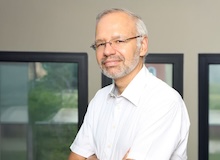
In his latest book, an award-winning cardiologist with a long career critically questions the prevailing thinking in the Western world on 15 fundamental issues. Interview with Manuel Martínez-Sellés.
.jpg)
We spoke in Berlin with Päivi Räsänen, the Finnish parliamentarian awaiting the outcome of a trial for publicly expressing her Christian beliefs. “I see a real threat to freedom. That’s why I always encourage Christians to make use of the rights we still have: freedom of speech, freedom of religion”.
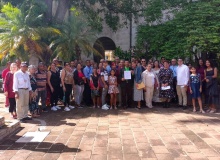
The Alliance of Christians in Cuba reports 996 repressive acts against religious leaders in 2024, in a country where 89% of families live in extreme poverty.
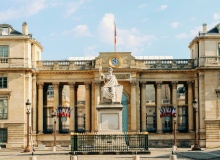
French evangelicals support the report but warn of the “risk of stigmatisation” of religious practices that are “fully protected by freedom of thought, conscience and religion”.
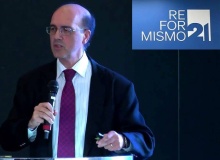
Politicians, whom are you going to address to your message? Only to the majorities? To the opinion leaders? To the lobbies? And whom are you going to listen to?

“This is a time of increased restrictions for the church in China, perhaps the worst in the last 40 years. But it’s also an important time of maturation”, says Brent Fulton, founder of ChinaSource.
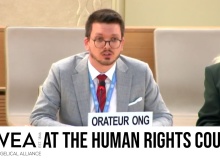
In its address to the UN Human Rights Council, the World Evangelical Alliance proposes better training on religious freedom for state officials and politicians.

A report warns about regions in Spain where educational protocols restrict parental rights and push minors into gender transition without medical advice.
.jpg)
We must call on Europe to make a critical assessment of the results of its policy of renouncing the biblical worldview. We must offer hope for revitalisation.
.jpg)
In January, the state Duma will discuss a law that would end all religious activity in residential buildings. Orthodox Church, Catholic Church and Adventists also oppose an initiative that “creates ground for interfaith conflicts”.
.jpg)
A concise joint Christian statement signed by Pentecostals, Baptists, evangelical Lutherans, as well as the Roman Catholic bishops, denounces the “activism” and “pressures” of the government.
The leader of the Spanish Evangelical Alliance is invited to speak on freedom of conscience, as ‘Reformismo21’ opens a channel to learn about what evangelicals think of a range of societal issues.
.jpg)
Authorities attend the presentation of the book by evangelical theologian José Moreno Berrocal, which underlines the valuable Christian contribution to freedom of conscience.
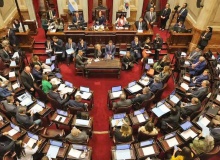
“The ideas of the Reformers spread rapidly throughout Europe, emphasising freedom of conscience”, stressed an evangelical leader at the presentation of the initiative.
.jpg)
The Dutch microscope pioneer, Jan Swammerdam, saw the magnificence of God displayed even in the despised and lowly louse. To a friend he wrote: ‘I present to you the almighty finger of God in the anatomy of a louse’.
.png)
When decriminalising abortion in 1975, the famous feminist Simone Veil called on the next generations to “preserve the supreme value of life”, recalls the CNEF.
.jpg)
Both the European Commission and the Parliament are addressing the problem of hate crimes. But without a clear definition of what “hate” is, we will not solve the problem, writes Arie de Pater of the European Evangelical Alliance in Brussels.

“Jesus Christ teaches us not to kill and he followed this also”, said a Baptist sentenced with two-year jail term for refusing military service.

Research looks at how the young in France see secularism. People between 18 and 30 are more tolerant of religious symbols in public.
.jpg)
As the Dutch led the way in shipping, map-making, navigation, trade, art and science, new ideas about God, man and the cosmos were conceived by Amsterdam-based thinkers like Descartes, Locke and Spinoza.
.jpg)
Tthey move with great ease by means of the lateral undulations of their bodies. They can do this because their skeletons are made up of short, broad and floating vertebrae.

Las opiniones vertidas por nuestros colaboradores se realizan a nivel personal, pudiendo coincidir o no con la postura de la dirección de Protestante Digital.